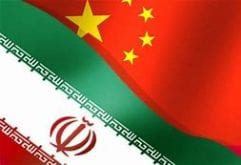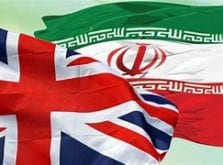Al-Monitor – On the surface, momentum seems to be building toward a further prisoner exchange between Iran and the United States. After two detainee swaps in the past six months, both sides have expressed a desire for more. The Donald Trump administration has made winning the release of US citizens a priority, and the Hassan Rouhani administration called for its own citizens to be allowed to come home. Yet the previous exchanges have not generated any mutual trust.
On June 5, Iran turned over Navy veteran Michael White to US special representative for Iran Brian Hook in Zurich. White had been held in Iran for nearly two years on charges of “insulting the country’s top leader” and publicly “posting a private photograph.” The United States then reciprocated by releasing Majid Taheri, an Iranian-American doctor who had been held over a sanctions violation. Science professor Sirous Asgari, who had also been caught up on a sanctions charge, was also allowed to return to Iran, although the United States said his case was unrelated to White’s. These releases followed a similar exchange in December, when Iran freed Princeton graduate student Xiyue Wang, a US citizen who had been held for three years on spying charges, and American authorities freed stem cell scientist Massoud Soleimani, who faced sanctions charges.
The exchanges were a rare foreign policy success for President Donald Trump, who tweeted a note of thanks to Iran after White was freed and called for talks on a “big deal.” On June 16, Hook said he hoped for further prisoner exchanges and talks on all the issues that have bedeviled relations over the past four decades.
The Iranian authorities are not interested. On May 10, cabinet spokesman Ali Rabiei had offered Iran’s readiness for all prisoners to be discussed without any conditions. Contrary to press reports, however, he did not offer to talk directly with the US government on the matter. Ever since the Jan. 3 assassination of Gen. Qasem Soleimani, direct talks with the United States have been off the table. Iran only wants to speak with the Swiss government, which acted as an intermediary in the last two prisoner swaps. Secretary of Iran’s Supreme National Security Council Ali Shamkhani dismissed Trump’s call for a ”big deal” and said “no dialogue will be held in the future.”
Iranian Foreign Ministry spokesman Seyyed Abbas Mousavi went further in denouncing the US government’s role in the latest exchange, claiming without evidence that Hook had tried to sabotage the swap. “They wanted him to die in Iran so they could take advantage of his death,” Mousavi was quoted as saying. Another government official who did not wish to be identified claimed senior State Department officials represented an “axis of spoilers.”
These outrageous charges reflect deep animosity. Several Iranian scholars contacted for this story said Iranian authorities believe that Secretary of State Mike Pompeo and Hook will do anything to try to bring Iran to its knees. “They wanted White dead in order to further isolate Iran and ratchet up the already heavy maximum pressure,” a Tehran-based professor said.
Iranian officials apparently resent the publicity that the United States attached to them, with pictures of Hook welcoming White and Wang on the Zurich airport tarmac. Neither does it help to couple prisoner releases with additional sanctions and threats. Although some have argued that Hook’s stance hinders the chances of a deal and claim he has been hesitant to engage, the latest successful releases could offer hope for future swaps.
While Iranian Deputy Foreign Minister Abbas Araghchi met with Hook in Zurich in December, the Iranian officials who delivered White to Vienna this month were instructed not to even make eye contact with him, according to an adviser to the Iranian Foreign Ministry. The Iranians may be willing to meet with Trump as long as it is not just for a photo op, but not with Pompeo or Hook, the adviser told Al-Monitor. Over the past year, Iran has rejected three US attempts to initiate consular dialogue.
Where does this leave the prospect for further prisoner swaps? At least six other American citizens are known to be imprisoned in Iran, although the families of three of them do not want their cases publicized. The three public cases involve Siamak Namazi, imprisoned since October 2015; his father Baquer Namazi, detained in February 2016; and Morad Tahbaz, held since January 2018 along with other environmentalists. Iran is also holding citizens of other countries, including British charity foundation administrator Nazanin Zaghari-Ratcliffe. In all cases, the charges do not withstand scrutiny.
The injustice in the Namazi case is the most incomprehensible and heartbreaking. A respected UNICEF official, Baquer Namazi went to Iran at age 80 to try to free his son and was himself arrested. He was hospitalized 12 times while in detention. While now out on medical furlough, he cannot leave Iran. Siamak remains in unhealthy confinement in Evin prison even as 85,000 other prisoners were furloughed as a coronavirus precaution.
Nobody can explain this cruelty. Siamak’s brother Babak said his family members are “pawns in a game we don’t understand.” What the known cases all have in common is that the prisoners are dual citizens detained in a country that does not recognize dual citizenship. Until last year, Iranian Foreign Ministry officials indicated that this status made judicial authorities unwilling to countenance negotiations for their release. Zarif now says he has authority to negotiate the release of all prisoners, including “Iranian hostages held in — and on behalf of — the US.”
So, what is holding it up? Jason Poblete, who facilitated White’s release, notes that a humanitarian pathway has now been put in place for releasing hostages from Iran. Now more than ever, Trump needs a foreign policy victory. He will not get the big deal he touts, but he might be able to bring more American prisoners home. To do so his team will need finesse in working with Iran, even if only via Switzerland.
 Shabtabnews In this dark night, I have lost my way – Arise from a corner, oh you the star of guidance.
Shabtabnews In this dark night, I have lost my way – Arise from a corner, oh you the star of guidance.


